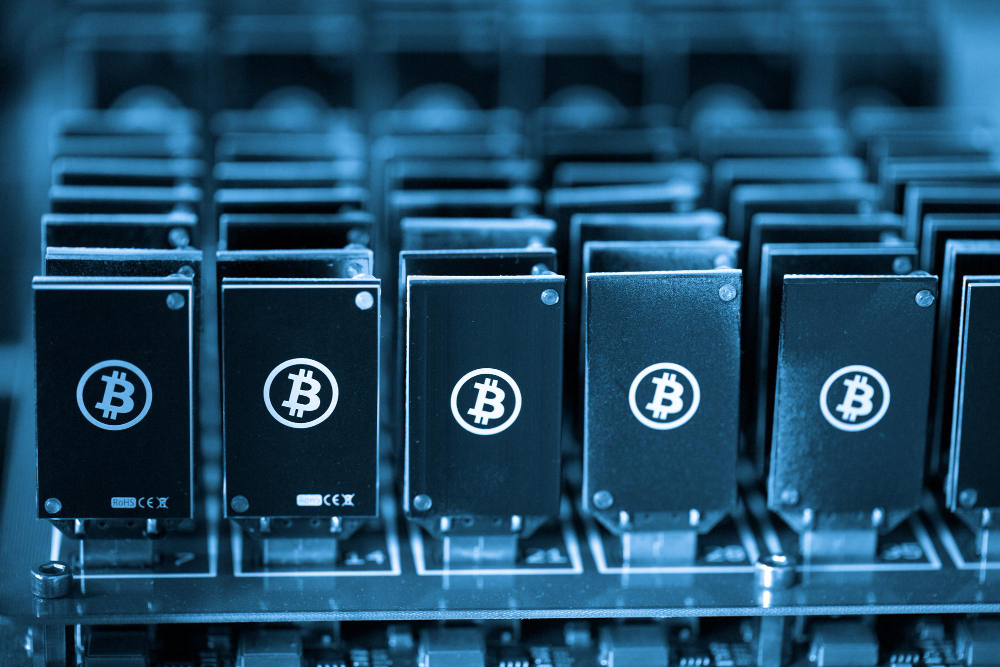
The work of miners is essential to the security of digital currency networks.
The main element of the existence and functioning of cryptocurrencies is a block chain or blockchain. Behind these elements is a group of people who support these networks and are known as miners. It is no exaggeration to say that mining is the basis of cryptocurrencies.
In general, what is Bitcoin mining is a process in which transactions on the network are verified and grouped. Once confirmed, these transactions are added to the blockchain. This process ensures the security of the network while facilitating the creation of new currencies, which allows cryptocurrencies such as Bitcoin to function.
At first glance, the name "mining" seems strange for such an activity, but there is a reason for this. In essence, gold miners and those generating new cryptocurrencies are doing a similar job, but with different tools: extracting value. Traditional miners, shall we say, extract value from the ground using their tools, while cryptocurrency miners extract this value from the network through the use of computer programs and hardware.
During cryptocurrency mining, the miner provides the computing power of his computer equipment to the service of the network. These networks need the power of these computers to validate their users' transactions. All valid transactions are grouped into a block, which is then added to the blockchain, thus processing packets of commercial transactions.
Miners who add new blocks to the chain receive a double reward. On the one hand, fees paid by users who made transactions that the miner included in the block, and on the other hand, new coins that the network releases on a schedule. In this regard, it should be noted that new cryptocurrencies are issued with each new block created. These cryptoassets are sent to the person who mined the block. It's like if a country's central bank sent freshly printed bills to miners for providing them with your computer hardware.
In the case of networks like Bitcoin or Litecoin, this reward adjusts over time. The possibility that it will reach a limit in the future and stop generating new assets is already being studied. This process by which the amount of assets created is gradually reduced is known as halving , and is a mechanism that makes it more likely that these currencies will not depreciate in the long term. What pulls the crypto market down, read on this page.
In order to receive a reward for mining a cryptocurrency, a miner must prove that their IT team made an effort to approve the transaction. A variable is added to the transaction hashing process that requires some effort before a block can be successfully processed. This is what is known as "proof of work". The activated block indicates that the miner has completed his work and therefore deserves a reward. This is the verification method that Bitcoin uses.
Many cryptocurrencies have supported Bitcoin's proof-of-work model because it has been proven to work. Others have decided to move away from this process and have implemented a proof-of-stake system instead. This method only requires miners to have a certain number of coins in their wallet. Users with more money, or users with money that has been stored in their wallet longer, are more likely to remove the lock without any additional effort.
As mentioned, in the process of mining, all data in the network is transferred and recorded by the blockchain. This means that coins can function as a means of electronic payment thanks to miners that confirm transactions and mine blocks. Also, because peer-to-peer networks are used, money can be handled in a decentralized manner. This is possible thanks to miners around the world who work to make the blockchain capable of processing data without having to constantly depend on a central server controlled by a third party.
But mining does not just ensure the constant operation of cryptocurrencies or decentralized data processing. Mining is essential to the security of cryptocurrency networks. Thanks to the work of miners that check the legitimacy of the data, only valid transactions are registered. They also protect the network from possible attempts to change recorded data or from attacks aimed at controlling its operation. Since the only way to reverse cryptocurrency transactions is to accumulate more than 51% of the computing power of the entire network, the more actively mining the blockchain, the more difficult it is to centralize it, and therefore its security is outdated.
As already mentioned, mining is part of the cycle of issuing new cryptocurrencies in the network. In this regard, it must be explained that although the emission rate is set in the protocol code of the network, it is the miners with their computing power that unlock the new coins that must be generated every time they mine a block.